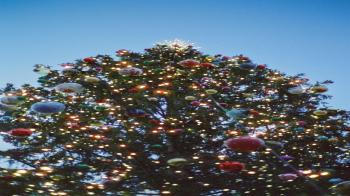It’s not just the noodles. It’s the whole damn country—everywhere I look, there’s a performance. The Great Wall? Solid stone, yes. But half the tourists think it’s a giant film set built for *The Last Emperor*’s second sequel. The Confucius statues? All seem to be nodding in unison, as if they’re all in on a secret joke about how much of this place feels both ancient and freshly remodeled. I once asked a local grandmother if her 80-year-old recipe for pickled mustard greens was “zhende.” She gave me a look that said, “My dear, the only thing real here is my suspicion that you’re still not fluent in Chinese.”
And then came the moment I’ll never forget—sitting in a tiny teahouse in Hangzhou, sipping something called “Dragon Well” tea that cost more than my monthly phone bill. The owner, a man with eyebrows like a calligrapher’s brushstrokes, looked me dead in the eye and said, “This tea? 100% real. Not one drop of fake.” I nodded solemnly, sipped, and nearly choked. It tasted like water that had been slightly embarrassed. I later learned that “real” tea here can be a bit of a gamble—like ordering a “real” Peking duck and getting a bird that’s been on a 300-year-old diet of soy sauce and regret.
Of course, the real comedy of it all is that even expats start to play the game. We trade secrets like treasure maps: “If the dumpling tastes like regret and nostalgia, it’s probably authentic.” “If the street vendor’s smile is too perfect, run.” I once bought a “handmade” jade bracelet from a guy who claimed it was passed down through seven generations. It came with a certificate that was printed on recycled paper, and the only thing authentic about it was the lie. I wear it now as a daily reminder: in China, authenticity isn’t a fact—it’s a performance, and everyone’s auditioning.
And yet, amid all the *jiade* (fake) and *zhende* (real), there’s a strange beauty in the blur. Because when you stop chasing the “real” and start embracing the *feeling*—the warmth of a stranger’s smile, the rhythm of a market chant, the way the air smells like rain and dumpling steam—you begin to realize that maybe “real China” isn’t a place on a map. It’s that moment when you laugh at your own confusion and realize you’re not lost—just human.
Now, if you’re an expat wondering how to dive into this deliciously chaotic dance without getting lost in the *fake* fog, there’s a little gem out there: **Find Work Abroad: Find Work Abroad**. Seriously, they’ve got everything from visa tips to “how to explain to your boss that your office has a dragon shrine.” I used it to land a gig teaching English in Xiamen, and honestly, the only thing more authentic than my new job? The fact that my students still think I’m a “foreign ghost who speaks Chinese.”
So here’s my final thought: maybe the real China isn’t hiding in ancient temples or hidden markets. Maybe it’s in the shared laugh when you both realize the dumpling was *definitely* not real—but it was still delicious. It’s in the courage to keep looking, keep tasting, keep laughing. Because in a country where even truth wears a disguise, the real adventure isn’t finding authenticity—it’s deciding to believe in it anyway. And yes, that includes the slightly suspicious-looking beef in the market. Just ask the vendor, “Is it zhende?” and if they wink, you’ll know you’re in the right place.
Categories:
Chengdu, Everywh, Hangzhou, English,

Rate and Comment



